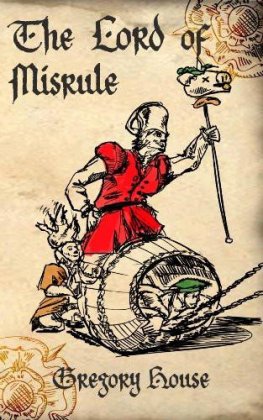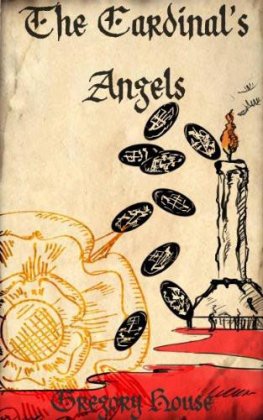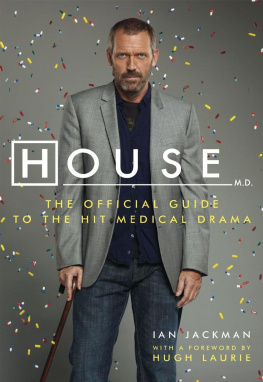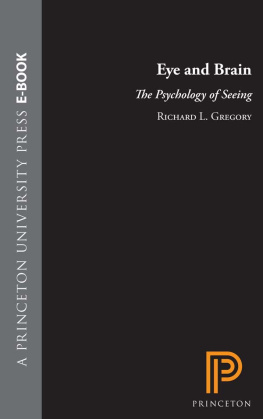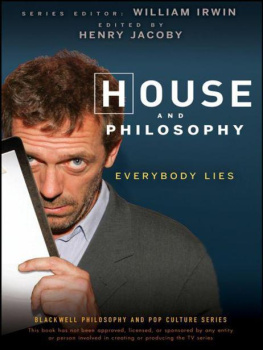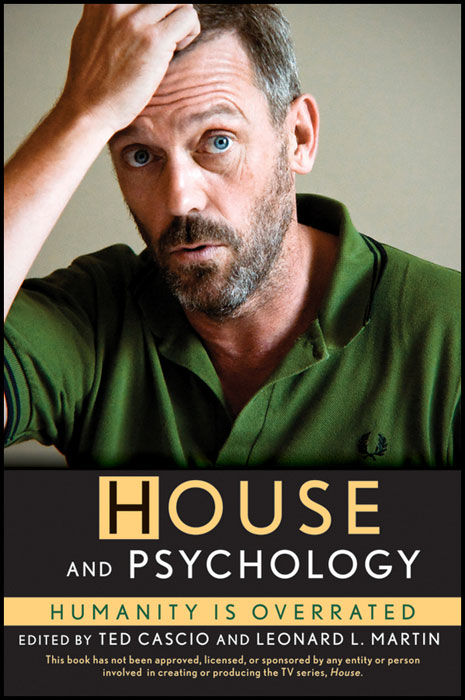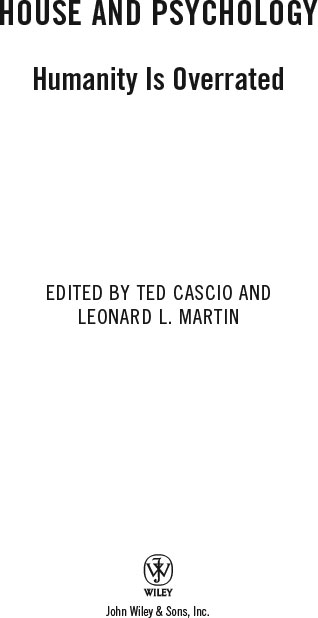Copyright 2011 by John Wiley & Sons, Inc. All rights reserved
Published by John Wiley & Sons, Inc., Hoboken, New Jersey
Published simultaneously in Canada
No part of this publication may be reproduced, stored in a retrieval system, or transmitted in any form or by any means, electronic, mechanical, photocopying, recording, scanning, or otherwise, except as permitted under Section 107 or 108 of the 1976 United States Copyright Act, without either the prior written permission of the Publisher, or authorization through payment of the appropriate per-copy fee to the Copyright Clearance Center, 222 Rosewood Drive, Danvers, MA 01923, (978) 750-8400, fax (978) 646-8600, or on the web at www.copyright.com . Requests to the Publisher for permission should be addressed to the Permissions Department, John Wiley & Sons, Inc., 111 River Street, Hoboken, NJ 07030, (201) 748-6011, fax (201) 748-6008, or online at http://www.wiley.com/go/permissions .
Limit of Liability/Disclaimer of Warranty: While the publisher and the author have used their best efforts in preparing this book, they make no representations or warranties with respect to the accuracy or completeness of the contents of this book and specifically disclaim any implied warranties of merchantability or fitness for a particular purpose. No warranty may be created or extended by sales representatives or written sales materials. The advice and strategies contained herein may not be suitable for your situation. You should consult with a professional where appropriate. Neither the publisher nor the author shall be liable for any loss of profit or any other commercial damages, including but not limited to special, incidental, consequential, or other damages.
For general information about our other products and services, please contact our Customer Care Department within the United States at (800) 762-2974, outside the United States at (317) 572-3993 or fax (317) 572-4002.
Wiley also publishes its books in a variety of electronic formats and by print-on-demand. Some content that appears in standard print versions of this book may not be available in other formats. For more information about Wiley products, visit us at www.wiley.com .
Library of Congress Cataloging-in-Publication Data:
House and psychology: humanity is overrated / edited by Ted V. Cascio and Leonard
M. Martin.
p. cm.
Includes bibliographical references and index.
ISBN 978-0-470-94555-1 (pbk); ISBN 978-1-118-11458-2 (ebk);
ISBN 978-1-118-11459-9 (ebk); ISBN 978-1-118-11460-5 (ebk)
1. Helping behavior. 2. Personality. I. Cascio, Edward V., date.
II. Martin, Leonard M., date.
BF637.H4H68 2011
791.4572.dc23
2011024781
Acknowledgments: Literary Health Assurance
This project was truly a team effort. Please join us in expressing gratitude to those who chipped in.
First and foremost, we would like to thank our amazing contributors, without whom this book would have been impossible. Their extraordinary scholarship, literacy, and diligence rendered our work as editors about as easy as making Scarlett Johansson look pretty (House in Fetal Position). Muchas gracias a todos y todas!
For providing creative and editorial feedback, we are grateful to Laura Buffardi, Edward J. Jackson, and Patricia and Joseph Cascio, as well as to students from our adjustment and social psychology courses at the University of Georgia (and, in particular, for his extremely valuable assistance locating quotes, thanks to Timothy Pierce-Tomlin!).
Introduction
An Ailment-Free Primer
Take caution: youre about to enter the extraordinary mental universe of the brilliant, bombastic, bile-belching doctor of medicine referred to simply as House. Hows that for a hook? No good? Okay, scratch that. Lets get a little closer to the subject. If a real hook were to become elongated and flame-tipped, it would embody something relevant to House, namely, his cane. This book is about objects such as flame-tipped canes, giant tennis balls, monster trucks, Game Boys, and adult magazines; well... not really. If you believe that, then you may need to be admitted under the care of a certain eminent diagnostician (whod frankly be happy to take your case to get out of clinic duty). Relax, you probably have time to swing by the bookstore register before you start hemorrhaging rectal blood.
Lets try this again. Youre reading this book to gain a fresh, sophisticated perspective on House and the other members of the Princeton-Plainsboro staff, right? Youre a smart person. Youre an enthusiastic fan of House , youre looking for something fun to read, and you have the urge to learn what other smart people think about one of your favorite TV shows. (Okay, I think were on the right track now.)
If so, youre not alone. Adoring audiences around the world seek a deeper understanding of House , an amazingly complex show just spoiling for careful and incisive analysis. Reading this book will enable you to become not only an even smarter person in general, but a smart fan of House in particular (that is, you may experience increased intracranial pressure). What you do with your new, enlightened perspective is completely up to you: impress your friends, write a term paper, post on Internet House forums... whatever. Or, you could simply bask in the glory of the newfound heights of your House fanaticism. This book is meant to bolster your House expertise by imparting psychological principles. It is ultimately intended to be fun but not completely frivolous, which, come to think of it, echoes the overall tone of House perfectly. House himself just might consider this book cool.
Of course, another possibility is that House would dismiss everything here as pretentious psychobabble. We (the editors) have taken every precaution to avoid including anything flimsy or resonant with pop psychology in this book. In other words, dont expect the sort of soothing platitudes and affirmations found on Dr. Phil . Since some of you are here primarily to take a peek at the holy grail of knowledge that research psychologists have unearthed (i.e., youre here to learn more about psychology for itself and for its own sake), this book is chock-full of scientifically valid, research-based psychological knowledge; so much so, that it would serve quite well as a supplemental text for psychology instructors at high schools and universities. As instructors ourselves, we cant think of a better way to make learning psychology fun.
We solicited essays from well-respected research psychologists, and we ended up with an awesome group of world-renowned experts who also happen to love House. This book comprises an anthology of the essays submitted to us by these experts. Each essay examines instances and characters from House through the lens of psychological theory and research. While some essays deal with a topic or topics that you will naturally find more interesting than others, we think that all of them focus on subject matter that is generally appealing and fundamental to House. Our objectives as editors were to celebrate House , as well as disabuse you, the reader, of certain illusions you may have about human nature. We are pretty sure that House, the man who once said that humanity is overrated, would endorse those aims and recommend this book to his many, many friends.
So join us as we decrypt the diagnosticians and solve the psychological puzzles of Princeton-Plainsboro!
PART ONE
The Good: Unlimited Vicodin


